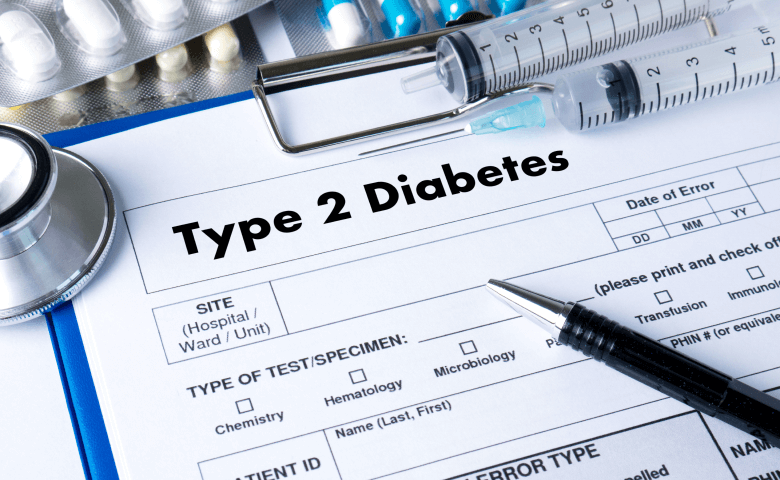What is bowel cancer?
Bowel cancer is cancer of the large bowel, which is made up of the colon and rectum. Non-cancerous growths (polyps) can form in the bowel lining and some of these polyps may eventually become cancerous. Once a cancer has formed, it can spread through the bowel wall, blood vessels and lymph glands, potentially spreading to other parts of the body.
It is the second leading cause of cancer-related deaths and the third most commonly diagnosed cancer in the United Kingdom. 1
The extent of the problem
Over 30,000 people are diagnosed with bowel cancer every year in England and Wales and this number is steadily increasing. This is driven by increases in the underlying risk factors for bowel cancer which include an unhealthy diet, insufficient physical activity, obesity, smoking and high alcohol consumption. With 60% of men and 50% of women predicted to be obese by 2050 2, and 90% of adults not consuming a sufficiently varied, fibre-rich diet, it is easy to see how this increase will occur.3
The most significant risk factor is a family history of the disease. Individuals with a first-degree relative (parent, sibling, or child) diagnosed with colorectal cancer have a 2 to 4 times higher risk of developing the disease compared to those without this family history. This risk increases if the relative was diagnosed before the age of 50 or if multiple relatives are affected.
How and where is bowel cancer diagnosed?
- 55% of cases are diagnosed following a GP referral.
- 20% are identified through A&E admissions.
- 15% are classified as 'other,' which includes incidental findings.
- 10% are detected via the National Bowel Cancer Screening Programme.
The first step in the detection process is usually the Quantitative Faecal Immunochemical Test (qFIT). qFIT is not a test for cancer but rather a test that looks for microscopic traces of blood in the stool. There can be other causes for blood in the stool such as polyps, inflammatory bowel disease, piles or diverticular disease. If blood is detected, the individual will require follow-up tests to determine the reason for the presence of blood in the stool.
A definitive diagnosis is then made by colonoscopy. During this procedure, a colonoscopy specialist passes a thin, flexible tube with a small camera (a colonoscope) into the rectum to examine the lining of the bowel.
What is a screening programme?
A screening programme needs to meet these criteria:4
- Condition – it should be an important health problem as judged by its frequency and/or severity.
- Test – it must be simple, safe, effective, and acceptable to the public (for example, it must not be so unpleasant that many people are put off having the test).
- Intervention – when the test detects the conditions, there must be an effective intervention available, and the benefits of this intervention must outweigh the harms.
- Screening programme – there must be good evidence that it is effective in reducing mortality (how many people die from the condition) and morbidity (how many people live with the condition and its effects).
Is qFIT an effective screening tool?
The qFIT test is non-invasive and we know bowel screening is an effective intervention as it reduces risk of dying from bowel cancer by at least 25%. Screening also supports early diagnosis (detecting cancer before symptoms present). When diagnosed at its earliest stage, survival is much higher than when the disease is diagnosed at a late stage (stages 3 & 4).
Currently in England bowel cancer screening is offered every 2 years between the ages of 54 and 74. The government is gradually extending this age range, and people aged 50 and upwards are now being invited as part of this process.5
Is the UK doing enough?
The number of younger adults diagnosed with bowel cancer is rising in England, according to new research from the University of Bristol. This study adds to the evidence of the growing trend in bowel cancer in the under 50s.
The researchers used data from over four decades to chart the trend of bowel cancer in younger adults in England. They observed rapid increases in adults aged 20–39 years and suggested that the rise in colorectal cancer incidence in young men and women may reflect the recent obesity trends in the UK.
So, are our bowel screening programmes casting the net wide enough given they only start at age 50?
The NHS screening programme invites people aged 54 and older for bowel cancer screening.5 This is based on the understanding that bowel cancer is a disease which occurs in older adults, with the average age of diagnosis being 71. However, there is a demographic shift occurring: colorectal cancer incidence is declining in people ages 65 and older, stable in those aged 50 to 61 since 2011, but increasing by 2% a year in people aged 54 and under.
When colorectal cancer is detected at an early stage, before it has spread, the 5-year relative survival rate is about 90%. Unfortunately, only about 40% of colorectal cancers are found at this early stage. When cancer has spread outside the colon or rectum, survival rates are lower.
What does the future hold?
The outlook is improving in some respects. Enhanced detection rates and advancing surgical techniques are leading to better survival rates. In the UK, deaths from bowel cancer have decreased by 50% for women and 41% for men between the early 1970s and 2019. 6
However, there has been a clear shift in incidence trends both in the UK and the United States. According to the American cancer society in 2023, approximately 153,020 individuals will be diagnosed with colorectal cancer and 52,550 will die from the disease, including 19,550 cases and 3,750 deaths in individuals younger than 50 years of age. It is predicted that there will be 46,050 new cases of rectal cancer, which is more common in younger people (37% of colorectal cancer in people younger than 50 years of age occurs in the rectum versus 24% in people 65 years or older.)
With improving survival rates and a growing cohort of younger people at risk of colorectal cancer, there is a strong argument for expanding screening and investigation efforts. It may be time to revisit our NICE guidelines and our national screening programmes to reflect this demographic incidence shift. While reducing the screening age below 50 would have resource implications, this could be offset by the reduced costs associated with earlier diagnosis. Additionally, it would offer people living with bowel cancer the best chance of survival and an improved quality of life.
What LiveSmart is doing
At LiveSmart we believe that offering screening to adults regardless of their age will allow for early identification of bowel cancer for more people. So, after careful consideration of emerging trends, we have decided to open up the screening eligibility with a robust support process. At LiveSmart any adult can have a qFIT test annually, if they don't have a previous diagnosis of bowel cancer or inflammatory bowel disease (ulcerative colitis or Crohn’s disease). Our aim is to support early detection, better treatment outcomes, improved survival, and by reducing the duration and complexity of treatments, to reduce the physical, emotional and financial burden on individuals and society.
References
- https://www.cancerresearchuk.org/health-professional/cancer-statistics/statistics-by-cancer-type/bowel-cancer#heading-One
- https://assets.publishing.service.gov.uk/media/5a7c7a94e5274a5255bceee6/07-1469x-tackling-obesities-future-choices-summary.pdf
- https://assets.publishing.service.gov.uk/government/uploads/system/uploads/attachment_data/file/699241/NDNS_results_years_7_and_8.pdf
- https://nationalscreening.blog.gov.uk/2021/06/07/five-things-you-should-know-about-the-uk-nsc
- https://www.cancerresearchuk.org/health-professional/cancer-screening/bowel-cancer-screening?_gl=1%2A1ggxp7y%2A_ga%2AMjMyMzY3NDcyLjE3MTM4NzgwNzg.%2A_ga_58736Z2GNN%2AMTcxMzg4MTM3MC4yLjEuMTcxMzg4MTgyOC40Ni4wLjA.%2A_gcl_au%2AMjA4MTA3NDI3LjE3MTM4NzgwNzg.
- https://www.cancerresearchuk.org/health-professional/cancer-statistics/statistics-by-cancer-type/bowel-cancer/mortality#heading-Two



